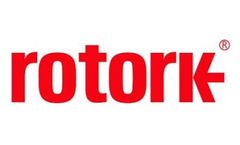Nuclear Power Plant And Equipment Market Articles & Analysis
25 articles found
To deal with global warming and energy shortages, the nuclear power industry has flourished in China. Operation of a nuclear power plant consumes a large amount of water and discharges radioactive wastewater into nearby water bodies. Therefore, assessment and management of water resources are crucial for such projects. This article proposes the contents, procedures and methods of water ...
Nuclear strategies of the UK and Finland are a widely debated area. With power plants, both fossil fuelled and nuclear powered, in the two countries about to expire, now is the time to make decisions to take their energy security and supply well into the forthcoming century. With this in mind, policies have been made within the European Union to reduce 20% carbon emissions by 2020 and 60% by ...
This paper reviews the present state of nuclear power infrastructure of Bangladesh. It describes how Bangladesh is progressing towards nuclear power. The major infrastructure issues about the way in which to implement the country's first nuclear power project have been identified and analysed. The domestic education and training infrastructure of the nuclear power sector of the country has been ...
The nuclear industry, owing to the security and quality restrictions, needs a team of professionals with a high degree of technical specialisation. Managing and keeping this team up to date with technology improvements, demands from Eletronuclear a constant concern with its qualification.Keywords: knowledge management, Eletronuclear, competence tree, intellectual capital mapping, Brazil, nuclear ...
A broad comparison between the two main light water reactor types, boiling and pressurised water reactors, is made in order to provide a background for the decision making on the nascent nuclear power industry in the Gulf Cooperation Council (GCC) states. The comparison leads to the natural choice of a novel reactor concept based on proven light water reactor technology and experience that is ...
Nuclear power is a mature industry with an incredible record of safety and reliability, without the emission of greenhouse gases, and one that is becoming economically attractive for private investment. The current interest in nuclear power for meeting future electricity and seawater desalination needs in the Gulf Corporation Council (GCC) states and other countries in the Middle East is prudent, ...
The investment in the nuclear industry by nanoscale technology is investigated. For marketing innovations, the consideration of the risks and benefits in the industry is important. For the promotion of a new technology, it is necessary to improve the safety standard of this technology, and the Risk Assessment (RA) of nanotechnology (NT) is an important step in the application of nanoscale ...
Nuclear power plants rely on computerised Instrumentation and Control (I&C) systems in monitoring, control and protection at nuclear facilities. I&C systems serve a critical role in monitoring and control functions in nuclear power plants (National Research Council, 1997). To support the use of I&C systems, nuclear power organisations have expanded the intellectual capital of their workforces ...
Knowledge management is the practice of capturing critical information and making the right information available to the right people at the right time. Such practices are critical for US government agencies that must make ethical and safety-oriented decisions in regulating commercial operations and waste disposal in the nuclear power industry. The development of knowledge management and ...
The Canadian nuclear industry has been faced with many challenges in the area of Knowledge Management (KM) over the past decade. Increasing levels of retirement have come at a time when the industry is facing increased demand for experienced nuclear scientists and engineers for refurbishment, decommissioning and new builds. In the mid-1990s, the industry was faced with the prospect of a growing ...
Applying lessons learned at the national, the utility, and the plant level, from selected segments of the world-wide nuclear power industry, might facilitate an environmentally acceptable renaissance in the US. It can be deduced that the core of all the continuous quality improvement and re-engineering programmes, championed by the top management of nuclear power utilities around the world, ...
Energy production from fossil fuels, mainly natural gas and coal, contributes significantly to global warming through large-scale greenhouse gas emissions, mainly of hundreds of billions of tonnes of carbon in the form of carbon dioxide. At least for the next few decades, one of the realistic options for reducing carbon dioxide emissions from energy production could be the increasing use of ...
Nuclear education and training networks will be developed at the national level to consolidate the existing expertise and provide a solid basis for networking at the international dimension. The Romanian Network of Excellence in Nuclear Physics and Engineering (REFIN) aims to develop an efficient, flexible and modern training system in the nuclear education area, which answers the requirements of ...
Various Nuclear Power Plants (NPPs) around the globe have begun to recognise the strategic importance of Knowledge Management (KM) initiatives in achieving sustained high levels of operational performance. Although these organisations have been involved in KM-related activities for some time, they typically have not viewed and managed these activities from a KM perspective. Several NPPs have been ...
South-East Asia's strong economic growth of recent decades is expected to endure the requirement of increasing amounts of energy as well as the corresponding capital investments. The development of a nuclear power industry has been considered for some time in several states, but concrete government action is yet to follow. Decisions to launch nuclear power programmes would be facilitated if and ...
In common with other power generation technologies, nuclear energy relies heavily on electric valve actuators for safe and efficient plant operation. In particular, electric valve actuators are used for crucial safety-related duties, both inside and outside the nuclear containment area or nuclear island. In both cases these duties demand actuators that are built to strict material specifications ...
Concerns are raised world-wide on the ageing of nuclear manpower, widespread retirements of senior workers within the past several years, the decline of nuclear education and training and the resulting shortage of nuclear manpower supply. The OECD/NEA and the IAEA started formulating activities regarding these concerns, which elaborate on the ways of expanding these activities. At this moment, it ...
Korean atomic energy activities have been the vigorous and ever expanding in the peaceful use of atomic energy. However for the last ten-year period, the new recruitments have been drastically reduced. The paper presents the nuclear manpower status in each nuclear related institute, which was surveyed in 2002. The ageing problem appears but is not very serious as a whole. The research institutes ...
The difficulties in sharing tacit knowledge may compromise the safe performance of high-reliability organisations. This threat has been recognised in nuclear power plants worldwide, owing to the risk of simultaneous retirements. In this study, the nature of tacit knowledge in Finnish nuclear power plants was examined and the expertise of nuclear workers modelled. The results of this interview ...
According to the nuclear legislation in Sweden, companies licensed to operate nuclear power plants have overall responsibility for safely managing all nuclear waste and to pay all expenses regarding final disposal. A committee was set up by the Government to explore the requirements in the present legislation, and if necessary, make proposals for improvements. The committee proposed that the ...



